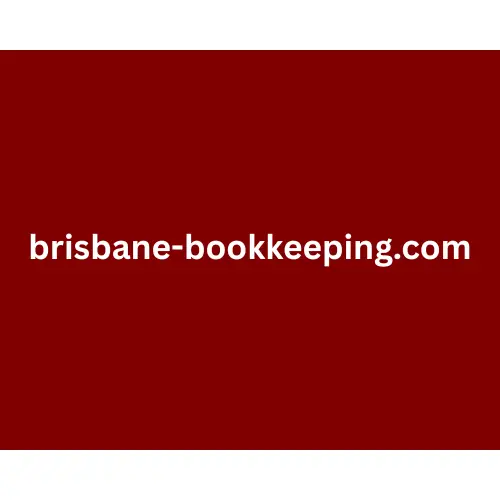Are you feeling overwhelmed by the looming tax season in Brisbane? 😰 You’re not alone. Many business owners and individuals find themselves scrambling to gather financial documents and make sense of their yearly transactions as the deadline approaches. But what if we told you there’s a better way?
Effective bookkeeping is the secret weapon that can transform your tax preparation from a stressful ordeal into a smooth, confident process. By implementing smart bookkeeping practices tailored to Brisbane’s unique tax environment, you can not only save time and reduce stress but also potentially maximize your deductions and ensure compliance year-round. 🎯💼
In this guide, we’ll walk you through the essential steps to prepare for tax time in Brisbane, from understanding the local tax landscape to leveraging professional bookkeeping services. We’ll explore how to organize your financial documents, implement effective bookkeeping practices, and stay on top of your tax obligations throughout the year. So, let’s dive in and discover how you can make tax season a breeze!
Contents
- 1 How Do I Prepare My Brisbane Business for Tax Time?
- 2 Understanding Brisbane’s Tax Environment
- 3 Implementing Effective Bookkeeping Practices
- 4 Organizing Financial Documents
- 5 Leveraging Professional Bookkeeping Services
- 6 Maximizing Tax Deductions
- 7 Preparing for Your Tax Return
- 8 Staying Compliant Year-Round
- 9 Conclusion
How Do I Prepare My Brisbane Business for Tax Time?
Tax time doesn’t have to mean stress and scrambling—solid bookkeeping throughout the year can make all the difference. At brisbane-bookkeeping.com, we connect Brisbane businesses with reliable bookkeepers who help you stay organised, compliant, and ready for EOFY. Contact us or visit our website for more information.
Understanding Brisbane’s Tax Environment
Key tax deadlines for Brisbane businesses
Brisbane businesses must be aware of crucial tax deadlines to avoid penalties and maintain compliance. Here’s a summary of the most important dates:
| Deadline | Tax Obligation |
|---|---|
| 21st of each month | Monthly BAS lodgment |
| 28 October | Quarter 1 BAS lodgment |
| 28 February | Quarter 2 BAS lodgment |
| 28 April | Quarter 3 BAS lodgment |
| 28 July | Quarter 4 BAS lodgment |
| 31 October | Income tax return for individuals and sole traders |
| 28 February | Income tax return for companies and trusts |
Common tax obligations for different business structures
Different business structures in Brisbane have varying tax obligations:
- Sole traders: Report business income on individual tax returns
- Partnerships: Lodge partnership tax returns and each partner reports their share
- Companies: Pay company tax and lodge company tax returns
- Trusts: Lodge trust tax returns and distribute income to beneficiaries
Local tax incentives and deductions
Brisbane businesses can benefit from various tax incentives and deductions:
- Research and Development Tax Incentive
- Small Business Technology Investment Boost
- Instant asset write-off for eligible assets
- Deductions for home-based businesses
- Export Market Development Grant (EMDG)
Understanding these local opportunities can significantly reduce your tax liability and improve your business’s financial position. Now that we’ve covered the Brisbane tax environment, let’s explore effective bookkeeping practices to help you prepare for tax time.
Implementing Effective Bookkeeping Practices

Choosing the right bookkeeping software
When implementing effective bookkeeping practices in Brisbane, selecting the appropriate software is crucial. Consider factors such as ease of use, scalability, and integration capabilities with other business systems. Here’s a comparison of popular bookkeeping software options:
| Software | Features | Suitable for |
|---|---|---|
| Xero | Cloud-based, bank feeds, invoicing | Small to medium businesses |
| MYOB | Payroll, inventory management | Medium to large businesses |
| QuickBooks | Expense tracking, reporting | Freelancers, small businesses |
| Reckon | Tax compliance, multi-currency | Australian businesses of all sizes |
Setting up a chart of accounts
A well-structured chart of accounts is the backbone of efficient bookkeeping. Customize your chart to reflect your business’s specific needs, including:
- Assets
- Liabilities
- Income
- Expenses
- Equity
Maintaining accurate financial records
Accuracy is paramount in bookkeeping. Implement these best practices:
- Record transactions daily
- Use consistent categorization
- Keep digital copies of receipts
- Separate personal and business expenses
Reconciling accounts regularly
Regular reconciliation ensures your books match your bank statements. Aim to reconcile:
- Bank accounts monthly
- Credit cards monthly
- Petty cash quarterly
By following these practices, you’ll be well-prepared for tax time and have a clear financial picture of your Brisbane business. Next, we’ll explore how to organize your financial documents effectively to streamline your tax preparation process.
Organizing Financial Documents
Creating a filing system for receipts and invoices
Establishing an efficient filing system for receipts and invoices is crucial for smooth tax preparation. Here’s a simple yet effective method:
- Categorize documents by type:
- Income-related (sales invoices, bank statements)
- Expense-related (purchase receipts, utility bills)
- Asset-related (equipment purchases, property documents)
- Use color-coded folders for easy identification
- Implement a chronological order within each category
- Create a master index for quick reference
| Document Type | Color Code | Filing Method |
|---|---|---|
| Income | Green | Chronological |
| Expenses | Red | By category |
| Assets | Blue | By asset type |
Tracking business expenses efficiently
Efficient expense tracking is vital for maximizing tax deductions. Consider these strategies:
- Use a dedicated business credit card for all expenses
- Implement cloud-based accounting software for real-time tracking
- Set up recurring expense categories for regular bills
- Take photos of receipts immediately using a mobile app
Managing payroll records
Accurate payroll records are essential for tax compliance. Ensure you:
- Keep detailed employee information
- Maintain records of hours worked and wages paid
- Store tax withholding documents (e.g., TFN declarations)
- Retain superannuation contribution records
Storing digital copies of important documents
In the digital age, having electronic backups is crucial:
- Scan physical documents and save them in cloud storage
- Use OCR technology for searchable digital copies
- Implement a naming convention for easy retrieval
- Regularly backup your digital files to prevent data loss
By organizing your financial documents effectively, you’ll streamline your tax preparation process and ensure you’re always ready for tax time in Brisbane.
Leveraging Professional Bookkeeping Services
Benefits of hiring a local Brisbane bookkeeper
Hiring a local Brisbane bookkeeper can provide numerous advantages for your business:
- Local expertise
- Personalized service
- Face-to-face interactions
- Familiarity with Brisbane’s business landscape
A professional bookkeeper in Brisbane understands the local tax laws, regulations, and business environment, ensuring accurate and compliant financial records. They can offer tailored solutions to meet your specific needs and are easily accessible for in-person meetings when needed.
| Benefit | Description |
|---|---|
| Local knowledge | Familiarity with Brisbane’s tax laws and regulations |
| Personalized approach | Customized solutions for your business needs |
| Accessibility | Easy to schedule face-to-face meetings |
| Network connections | Access to local resources and professional networks |
Choosing between in-house and outsourced bookkeeping
When deciding between in-house and outsourced bookkeeping, consider the following factors:
- Business size and complexity
- Budget constraints
- Required level of expertise
- Time and resources available
Outsourced bookkeeping services in Brisbane often provide a cost-effective solution for small to medium-sized businesses, offering access to experienced professionals without the overhead of a full-time employee. However, larger companies with complex financial needs may benefit from an in-house team.
Collaborating with your bookkeeper for tax preparation
Working closely with your bookkeeper can significantly streamline your tax preparation process:
- Regular communication
- Proactive planning
- Accurate record-keeping
- Timely reporting
Establish a routine for sharing financial information and discussing tax-related matters with your bookkeeper. This collaboration ensures that your financial records are always up-to-date and organized, making tax time less stressful and more efficient. Your bookkeeper can also help identify potential deductions and credits, maximizing your tax benefits.
Now that we’ve explored the advantages of professional bookkeeping services, let’s look at how you can maximize your tax deductions.
Maximizing Tax Deductions

A. Identifying eligible business expenses
When it comes to maximizing tax deductions for your Brisbane business, understanding which expenses are eligible is crucial. Eligible business expenses can significantly reduce your taxable income, leading to potential savings. Here’s a list of common deductible expenses:
- Office supplies and equipment
- Rent and utilities
- Marketing and advertising costs
- Employee wages and benefits
- Professional development and training
- Travel expenses related to business
- Insurance premiums
It’s important to keep accurate records of all these expenses throughout the year. Consider using a digital bookkeeping system to categorize and track your expenses efficiently.
B. Keeping detailed logs for vehicle and home office use
Accurate record-keeping is essential for claiming vehicle and home office deductions. Here’s a comparison of what to track for each:
| Vehicle Use | Home Office Use |
|---|---|
| Odometer readings | Square footage of office space |
| Fuel costs | Utilities (proportional) |
| Maintenance expenses | Internet and phone costs |
| Parking fees | Office furniture and equipment |
| Purpose of each trip | Hours worked from home |
C. Understanding depreciation and asset write-offs
Depreciation allows you to deduct the cost of assets over their useful life. In Australia, the instant asset write-off scheme enables small businesses to immediately deduct the cost of eligible assets. Keep track of:
- Purchase date and cost of assets
- Asset’s estimated useful life
- Method of depreciation used
D. Claiming industry-specific deductions
Different industries in Brisbane may have unique deductions available. Research your specific sector to ensure you’re not missing out on valuable tax breaks. Some examples include:
- Tools and protective clothing for tradespeople
- Professional memberships and subscriptions
- Research and development costs for tech companies
- Licenses and permits for hospitality businesses
Always consult with a qualified tax professional to ensure you’re claiming all eligible deductions while remaining compliant with Australian tax laws.
Now that we’ve covered how to maximize your tax deductions, let’s move on to preparing your tax return, which will help you put all this information into practice.
Preparing for Your Tax Return
Gathering necessary financial statements
When preparing for your tax return in Brisbane, the first step is to gather all essential financial statements. These documents provide a comprehensive overview of your business’s financial health and are crucial for accurate tax reporting.
- Balance Sheet
- Income Statement
- Cash Flow Statement
- Bank Statements
- Accounts Receivable and Payable Reports
Ensure all these documents are up-to-date and cover the entire financial year. This will streamline the tax preparation process and help avoid last-minute scrambling.
Reviewing profit and loss reports
A thorough review of your profit and loss (P&L) reports is essential for understanding your business’s financial performance. This step helps identify areas of profitability and potential tax implications.
Key aspects to focus on:
- Revenue streams
- Operating expenses
- Gross and net profit margins
- Unusual fluctuations or discrepancies
| P&L Component | Importance for Tax Preparation |
|---|---|
| Revenue | Determines taxable income |
| Expenses | Identifies potential deductions |
| Net Profit | Basis for tax calculation |
Calculating GST obligations
As a Brisbane business owner, accurately calculating your Goods and Services Tax (GST) obligations is crucial. This involves:
- Reviewing all GST-inclusive transactions
- Determining GST collected on sales
- Calculating GST paid on purchases
- Reconciling GST accounts
Ensure your bookkeeping system accurately tracks GST throughout the year to simplify this process.
Compiling employee payment summaries
The final step in preparing for your tax return involves compiling accurate employee payment summaries. These documents are essential for both your business’s tax obligations and your employees’ personal tax returns.
Key information to include:
- Gross salary and wages
- Superannuation contributions
- PAYG withholding amounts
- Allowances and bonuses
Maintaining detailed records throughout the year will make this task much easier when tax time arrives. With these steps completed, you’ll be well-prepared to file your tax return or hand over the necessary information to your accountant or tax professional.
Staying Compliant Year-Round
Implementing monthly financial health checks
To stay compliant year-round, implementing monthly financial health checks is crucial. These checks help you maintain accurate records and identify potential issues before they become significant problems.
Here’s a simple checklist for your monthly financial health checks:
- Review bank reconciliations
- Verify accounts receivable and payable
- Analyze cash flow
- Check profit and loss statements
- Review inventory (if applicable)
By consistently performing these checks, you’ll have a clear picture of your business’s financial health and be better prepared for tax time.
Setting reminders for quarterly tax installments
Staying on top of your quarterly tax installments is essential for maintaining compliance and avoiding penalties. Here’s a table outlining the due dates for quarterly tax installments in Australia:
| Quarter | Due Date |
|---|---|
| Q1 (Jul-Sep) | 28 October |
| Q2 (Oct-Dec) | 28 February |
| Q3 (Jan-Mar) | 28 April |
| Q4 (Apr-Jun) | 28 July |
Set up automatic reminders in your calendar or accounting software to ensure you never miss a payment.
Staying informed about tax law changes
Tax laws and regulations are constantly evolving. To stay compliant, it’s crucial to keep yourself informed about any changes that may affect your business. Some ways to stay updated include:
- Subscribing to ATO newsletters
- Following reputable tax professionals on social media
- Attending tax seminars or webinars
- Regularly consulting with your accountant or bookkeeper
Conducting regular internal audits
Internal audits help identify potential compliance issues and areas for improvement in your financial processes. Here are some key areas to focus on during your internal audits:
- Expense tracking and categorization
- Revenue recognition
- Payroll processes
- GST compliance
- Record-keeping practices
By conducting these audits regularly, you’ll be better positioned to address any issues promptly and maintain compliance throughout the year.
Now that we’ve covered strategies for staying compliant year-round, let’s explore how these practices contribute to a smoother tax preparation process.
Conclusion
Preparing for tax time in Brisbane doesn’t have to be a daunting task. By implementing effective bookkeeping practices, organizing financial documents, and leveraging professional services, you can streamline the process and ensure compliance with local tax regulations. Maximizing deductions and staying on top of your finances year-round will not only make tax preparation easier but can also lead to significant savings.
Take the first step towards a stress-free tax season by evaluating your current bookkeeping practices and identifying areas for improvement. Whether you choose to handle your bookkeeping in-house or enlist the help of a professional, the key is to start early and stay consistent. Remember, good bookkeeping isn’t just about meeting tax obligations – it’s a powerful tool for understanding and growing your business in Brisbane’s dynamic economic landscape.
Getting your books in order before tax season means fewer surprises, faster returns, and peace of mind. brisbane-bookkeeping.com makes it easy to find a bookkeeper who understands Brisbane business needs and takes the pressure off when it matters most. Contact us or visit our website for more information.

